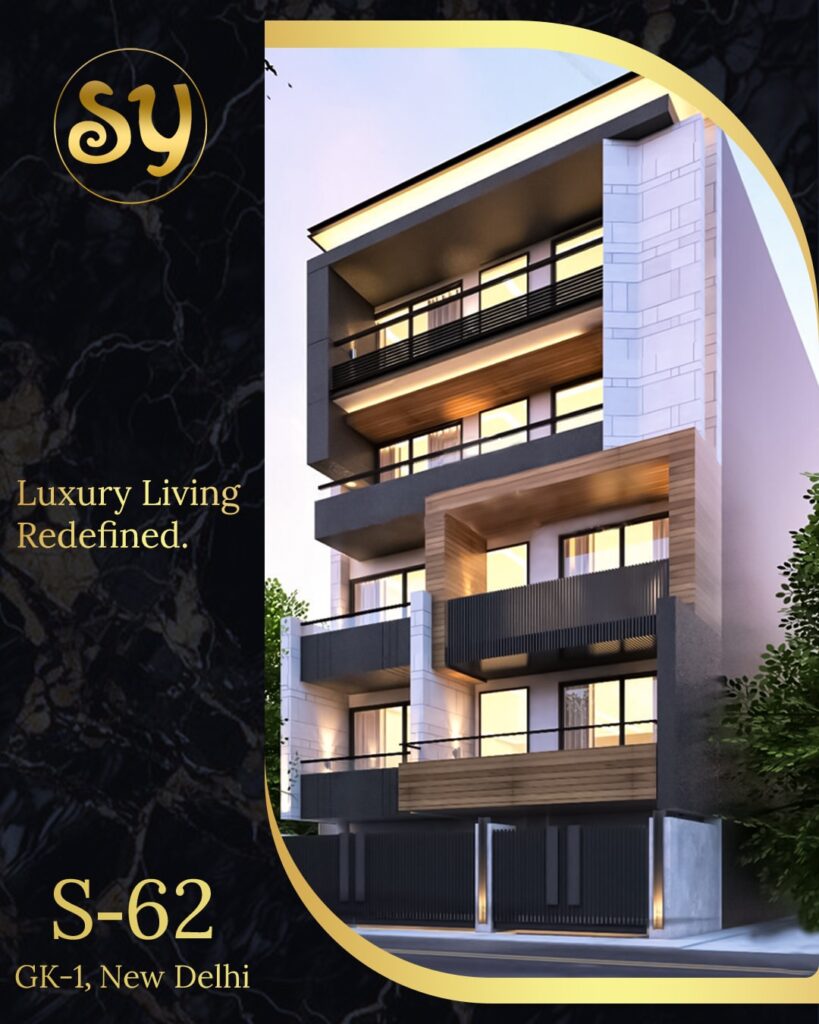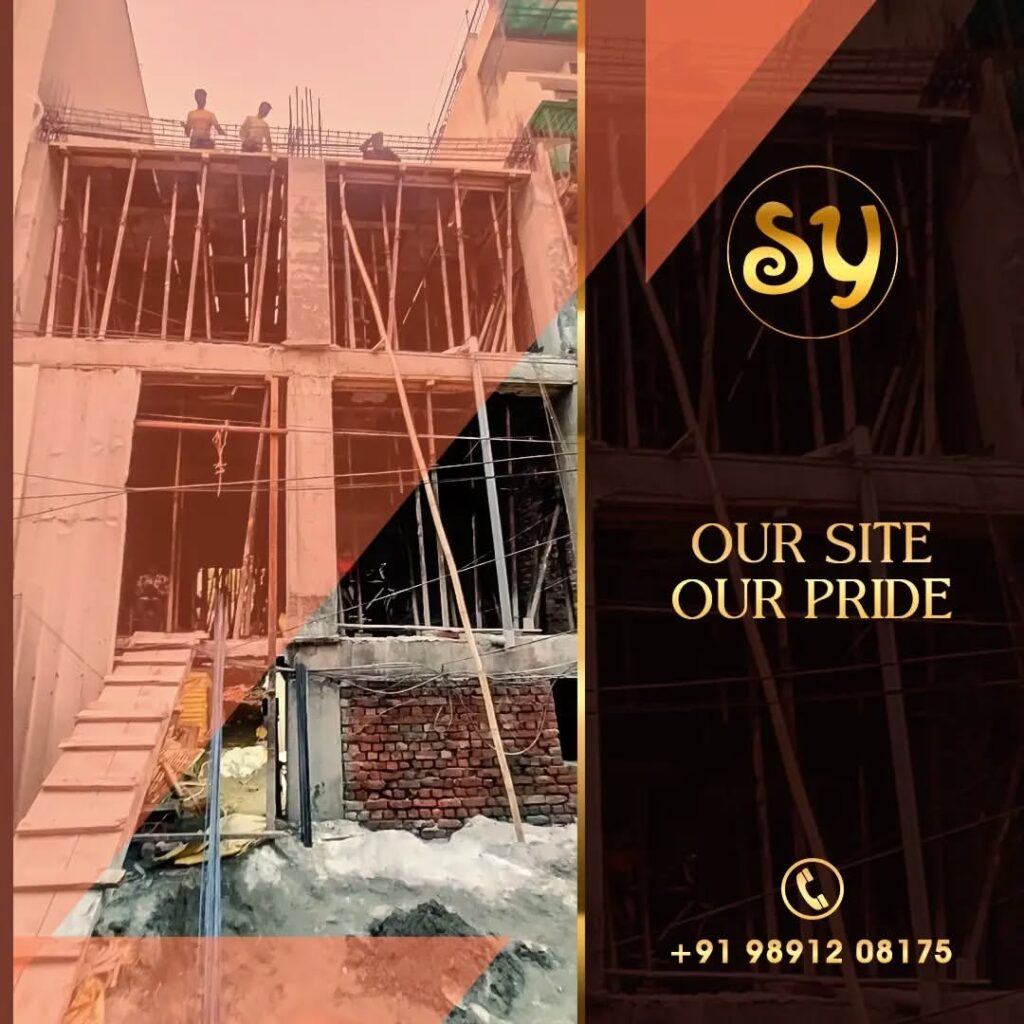The Future of Luxury Living: Emerging Trends in Premium Residential Design
In the bustling metropolis of Delhi, where ancient heritage meets modern aspirations, the dream of owning a home that stands the test of time remains paramount for every family. Quality construction in Delhi isn’t just about building structures; it’s about creating generational properties that serve as cornerstones for families across decades. When you invest in durable homes, you’re not just purchasing bricks and mortar – you’re securing a legacy that will shelter your children, grandchildren, and generations to come. Understanding Quality Construction in the Delhi Context Delhi’s unique geographical and climatic challenges demand a specialized approach to construction. The city experiences extreme weather variations, from scorching summers exceeding 45°C to harsh winters, monsoon floods, and frequent seismic activity. Quality construction in Delhi must account for these environmental factors while adhering to the highest standards of safety, durability, and sustainability. The foundation of any generational property lies in understanding that construction quality isn’t negotiable. It’s the difference between a house that requires constant repairs and one that appreciates in value while providing unwavering security to its inhabitants. SY Associates recognizes that when families invest their life savings into a home, they deserve nothing less than exceptional craftsmanship that honors their trust and financial commitment. The Pillars of Durable Homes 1. Foundation Excellence: The Bedrock of Generational Properties The foundation of durable homes begins literally at ground level. In Delhi’s diverse soil conditions, ranging from sandy loam in some areas to clay-rich soil in others, proper foundation design becomes critical. Quality construction in Delhi requires comprehensive soil testing, appropriate foundation depth calculations, and the use of high-grade concrete with proper reinforcement. Modern generational properties incorporate advanced foundation techniques such as pile foundations in areas with poor soil bearing capacity, proper waterproofing systems to prevent moisture ingress, and seismic-resistant design elements that ensure structural integrity during earthquakes. The foundation phase sets the stage for everything that follows, making it the most crucial investment in your home’s longevity. 2. Structural Engineering: Building for Centuries The structural framework of durable homes must be engineered to withstand not just current loads but also future modifications and environmental stresses. Quality construction in Delhi employs reinforced concrete construction with properly calculated steel reinforcement ratios, ensuring that the structure can handle both static and dynamic loads effectively. Generational properties require structural systems that allow for future expansions, renovations, and technological upgrades without compromising the building’s integrity. This forward-thinking approach to structural design ensures that your investment remains relevant and adaptable to changing family needs and technological advancements. 3. Material Selection: The DNA of Quality Construction The choice of construction materials directly impacts the longevity and maintenance requirements of durable homes. Quality construction in Delhi prioritizes materials that can withstand the city’s harsh climate while maintaining their structural and aesthetic properties over time. Premium cement grades, high-strength steel reinforcement, quality aggregates, and weather-resistant exterior materials form the backbone of generational properties. The initial investment in superior materials pays dividends through reduced maintenance costs, enhanced durability, and improved property values over time. Climate-Responsive Design for Delhi’s Unique Environment Thermal Comfort and Energy Efficiency Delhi’s extreme temperature variations demand intelligent design solutions that ensure year-round comfort while minimizing energy consumption. Quality construction in Delhi incorporates thermal insulation systems, strategic window placement, and passive cooling techniques that reduce dependence on artificial climate control systems. Durable homes feature double-wall construction with insulation layers, reflective roofing materials, and carefully planned ventilation systems that promote natural air circulation. These design elements not only enhance comfort but also contribute to the long-term sustainability and operational efficiency of generational properties. Water Management and Monsoon Preparedness Effective water management systems are essential components of quality construction in Delhi. The city’s monsoon patterns and occasional flooding require comprehensive drainage solutions, waterproofing systems, and rainwater harvesting infrastructure. Generational properties incorporate sloped terraces with proper drainage, basement waterproofing systems, and stormwater management solutions that protect the structure from water damage while contributing to groundwater recharge. These systems ensure that your investment remains secure even during extreme weather events. Modern Technologies in Quality Construction Smart Building Integration Today’s generational properties seamlessly integrate smart building technologies that enhance security, comfort, and operational efficiency. Quality construction in Delhi now includes provisions for home automation systems, security networks, and energy management solutions that can be upgraded as technology evolves. Durable homes feature structured cabling systems, robust electrical infrastructure, and smart-ready plumbing systems that accommodate future technological integrations without requiring major renovations. This technological readiness ensures that your home remains contemporary and valuable across generations. Sustainable Construction Practices Environmental consciousness has become integral to quality construction in Delhi. Generational properties incorporate sustainable materials, energy-efficient systems, and eco-friendly construction practices that reduce environmental impact while providing long-term cost benefits. Solar-ready roofing systems, rainwater harvesting, waste management solutions, and energy-efficient lighting and appliances are standard features in modern durable homes. These sustainable elements not only reduce operational costs but also contribute to a healthier living environment for your family. The SY Associates Approach to Generational Properties Comprehensive Planning and Design At SY Associates, we understand that quality construction in Delhi requires meticulous planning that considers both current needs and future aspirations. Our approach to creating generational properties begins with comprehensive site analysis, family requirement assessment, and long-term planning that ensures your home evolves with your family’s changing needs. Our design philosophy emphasizes flexibility, durability, and timeless aesthetics that remain relevant across decades. We believe that durable homes should not only meet current building standards but exceed them, providing a safety margin that ensures long-term performance and value appreciation. Quality Assurance and Construction Management The construction phase of generational properties demands rigorous quality control and project management systems. Our quality construction in Delhi process includes regular inspections, material testing, and adherence to international construction standards that ensure every aspect of your home meets the highest quality benchmarks. We employ experienced craftsmen, use advanced construction equipment, and implement systematic quality checks at every construction stage. This comprehensive approach to quality assurance ensures that your investment in durable homes delivers the


